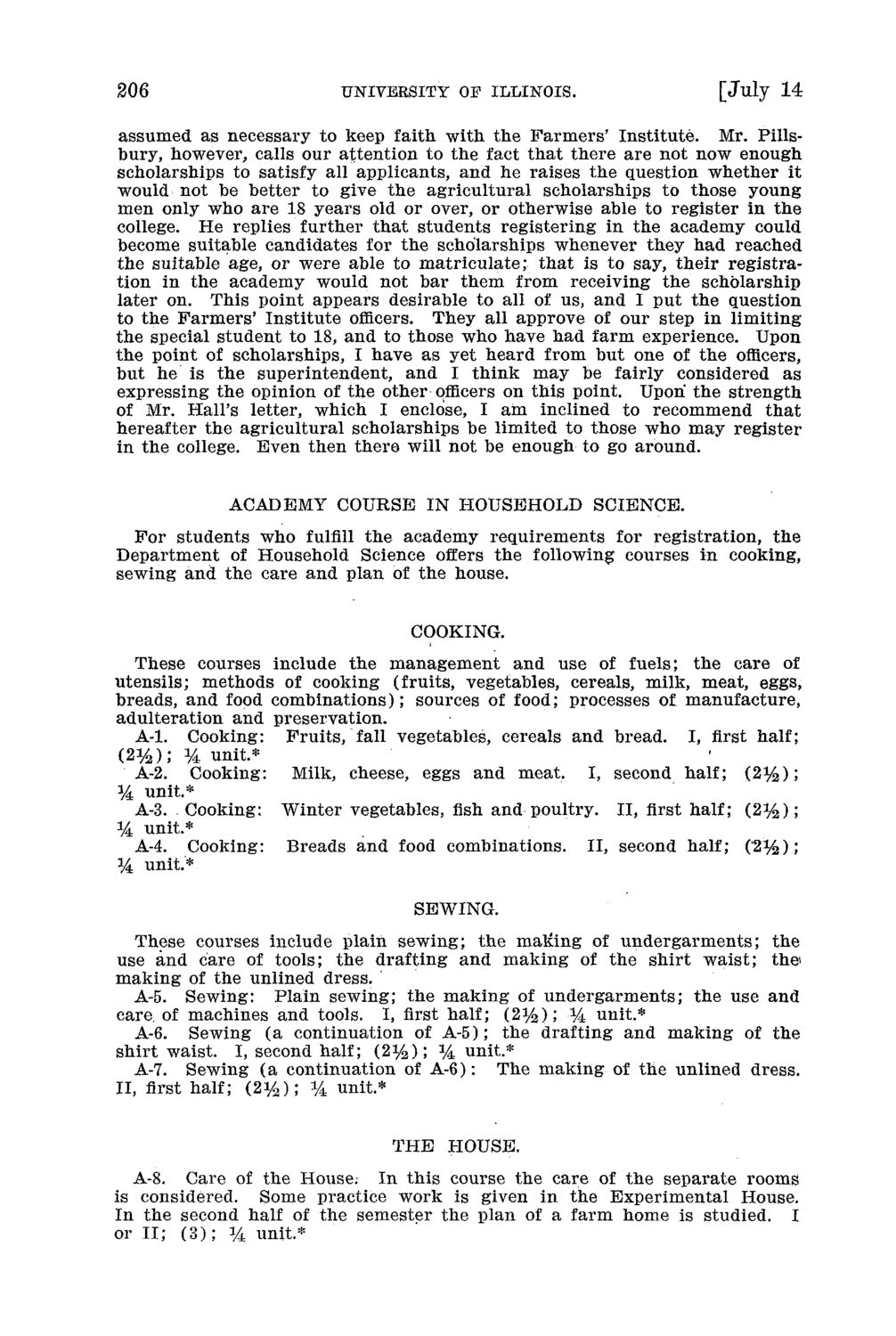| |
| |
Caption: Board of Trustees Minutes - 1910
This is a reduced-resolution page image for fast online browsing.

EXTRACTED TEXT FROM PAGE:
206 UNIVERSITY OP ILLINOIS. [July 14 assumed as necessary to keep faith with the Farmers' Institute. Mr. Pillsbury, however, calls our attention to the fact that there are not now enough scholarships to satisfy all applicants, and he raises the question whether it would not be better to give the agricultural scholarships to those young men only who are 18 years old or over, or otherwise able to register in the college. He replies further that students registering in the academy could become suitable candidates for the scholarships whenever they had reached the suitable age, or were able to matriculate; that is to say, their registration in the academy would not bar them from receiving the scholarship later on. This point appears desirable to all of us, and I put the question to the Farmers' Institute officers. They all approve of our step in limiting the special student to 18, and to those who have had farm experience. Upon the point of scholarships, I have as yet heard from but one of the officers, but he is the superintendent, and I think may be fairly considered as expressing the opinion of the other officers on this point. Upon the strength of Mr. Hall's letter, which I enclose, I am inclined to recommend that hereafter the agricultural scholarships be limited to those who may register in the college. Even then there will not be enough to go around. ACADEMY COURSE IN HOUSEHOLD SCIENCE. For students who fulfill the academy requirements for registration, the Department of Household Science offers the following courses in cooking, sewing and the care and plan of the house. COOKING. These courses include the management and use of fuels; the care of utensils; methods of cooking (fruits, vegetables, cereals, milk, meat, eggs, breads, and food combinations); sources of food; processes of manufacture, adulteration and preservation. A-l. Cooking: Fruits, fall vegetables, cereals and bread. I, first half; (2y 2 ); % unit* A-2. Cooking: Milk, cheese, eggs and meat. I, second half; ( 2 % ) ; % unit.* A-3. Cooking: Winter vegetables, fish and poultry. II, first half; ( 2 % ) ; % unit.* A-4. Cooking: Breads and food combinations. II, second half; ('2%); % unit.* SEWING. These courses include plain sewing; the making of undergarments; the use and care of tools; the drafting and making of the shirt waist; the* making of the unlined dress. A-5. Sewing: Plain sewing; the making of undergarments; the use and care, of machines and tools. I, first half; ( 2 % ) ; % unit.* A-6. Sewing (a continuation of A-5); the drafting and making of the shirt waist. I, second half; ( 2 % ) ; 14 unit.* A-7. Sewing (a continuation of A-6): The making of the unlined dress. II, first half; (2y 2 ); % unit* THE HOUSE. A-8. Care of the House. In this course the care of the separate rooms is considered. Some practice work is given in the Experimental House. In the second half of the semester the plan of a farm home is studied. I or II; (3); % unit*
| |